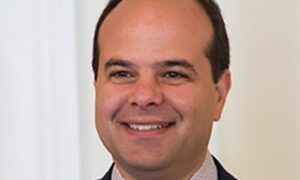Neubase Cuts 60 Percent of Workforce; Pivots Platform from Antisense to Gene Editing
October 17, 2022
NeuBase Therapeutics said it will reduce its workforce by 60 percent and restructure the company to focus on the advancement of its platform in gene editing in order to reduce costs and extend its cash runway into the second quarter of 2022.

Photo: Dietrich Stephan, founder and CEO of NeuBase
“After careful consideration of the current development timelines for our pipeline in conjunction with the tightening of the capital markets for small biotech companies over the past year, we have made the strategic decision to focus NeuBase’s resources on the development of our platform in gene editing, which we believe has the greatest potential to create long-term shareholder value,” said Dietrich Stephan, founder and CEO of NeuBase.
The NeuBase platform, PATrOL, or peptide-nucleic acid (PNA) antisense oligonucleobase, promised to overcome the hurdles of delivery, tolerability, selectivity, manufacturability, durability, and scalability that limited other gene silencing technologies.
“While we continue to believe PATrOL has the ability to deliver best-in-class treatments for rare and common diseases, we have decided to reprioritize company resources by limiting future investment in our myotonic muscular dystrophy type 1 (DM1), Huntington’s disease (HD), and KRAS programs and pursue collaborative initiatives, including partnerships, for these programs,” said Stephan. “We believe our differentiated gene editing capabilities will allow us to develop the next generation of therapies to address various high-value genetic mutations.”
As part of the cost-cutting strategy and development pipeline shift to gene editing, the company will defer preclinical activities for its DM1, HD, and KRAS programs and hold plans to submit an Investigational New Drug (IND) application for DM1 to the U.S. Food and Drug Administration. The Company’s Head of Research and Development and Chief Medical Officer, Sandra Rojas-Caro, chief medical officer and head of R&D, is resigning and will be departing NeuBase on October 28, 2022.
George Church, professor at Harvard Medical School and the Massachusetts Institute of Technology and chair of NeuBase’s Gene Editing Advisory Board, offered his approval for Neubase’s move to focus on its gene editing platfom.
“NeuBase’s editing technology has the potential to be game-changing in the biotechnology industry,” he said. “This technology potentially allows for extremely precise targeting of a mutation in the genome, which is likely to reduce or eliminate off-target edits, and it works through the recruitment of high-fidelity human DNA repair enzymes to correct a mutation as opposed to the use of bacterial-derived CRISPR/Cas enzymes. There is likely low toxicity due to a lack of double-stranded breaks and a low immunogenicity profile, with the potential for repeat dosing to compensate for tissue turnover and requisite editing efficiencies for clinical benefit. These features make the solution ideal for in vivo editing applications.”
Author: Rare Daily Staff

Stay Connected
Sign up for updates straight to your inbox.
